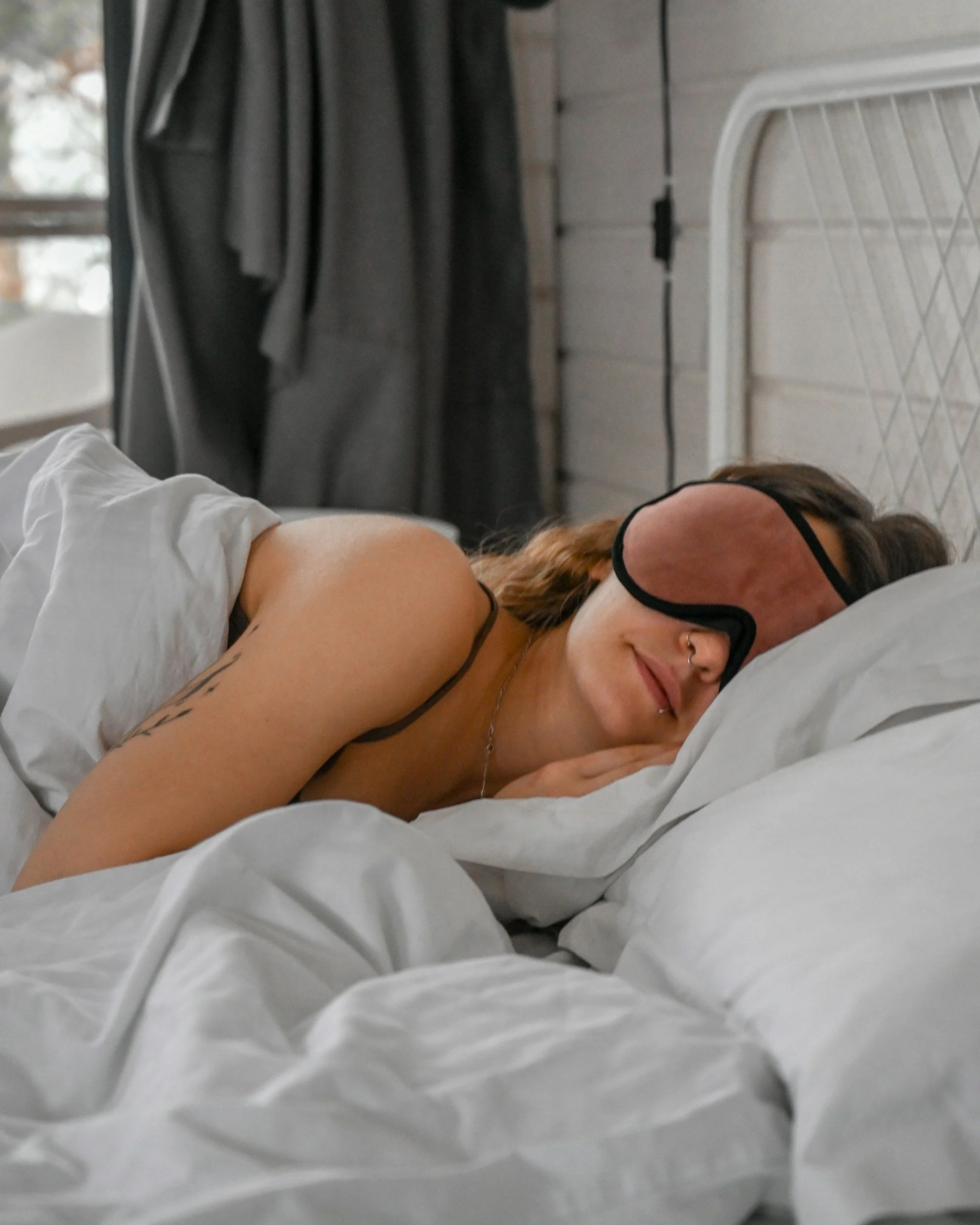When Sleep Hygiene Isn’t Enough: Why You Still Can’t Fall Asleep
You’ve Tried Everything, But You’re Still Wide Awake
You avoid your phone and TV, dim your lights, and drink “sleepy time” tea. You’ve read every article about sleep hygiene. Maybe you’ve bought blackout curtains, a white-noise machine, or that pillow spray that promised better rest. And yet, your mind keeps racing. The harder you try to sleep, the more awake you feel.
If this sounds familiar, you’re not alone. Many people who struggle with insomnia feel frustrated and anxious when their sleep still doesn’t improve after following sleep hygiene practices. It’s not for lack of effort. It’s because sleep hygiene addresses your environment, not the underlying factors that regulate your sleep.
Why Sleep Hygiene Isn’t Enough
Sleep hygiene — keeping your room dark, cut down on caffeine, limiting screen time — supports healthy sleep, but these strategies often fall short when used on its own as an attempt to combat chronic insomnia. In fact, research has shown that sleep hygiene is NOT effective as a stand stand-alone treatment for insomnia.
Think of sleep hygiene like dental hygiene. Brushing and flossing every day are excellent habits that keep your teeth healthy, but if you develop a cavity, brushing harder won’t fix it. You’d need a dentist to treat the underlying problem. The same goes for sleep: consistent routines and healthy habits can support good rest, but when insomnia sets in, it usually takes more than “good sleep hygiene” to resolve it. CBT-I works like the dental treatment—it addresses the root causes of insomnia so your natural sleep system can function properly again.
The Cycle That Keeps You Awake
Insomnia feeds on itself. It may have started after a stressful or traumatic event, and a few rough nights create worry about sleep. Over time, your brain starts to associate your bed with stress and wakefulness rather than calm and sleepiness. You might even anticipate another restless night before you lie down. Your brain becomes stuck in “on” mode, even when your body is exhausted.
How CBT-I Breaks the Cycle
Cognitive Behavioral Therapy for Insomnia (CBT-I) directly targets these patterns. It helps retrain your brain and body to sleep naturally again, without relying on medication.
CBT-I typically includes:
Resetting your sleep schedule. Strategic and consistent timing cues strengthens your body’s circadian rhythm.
Reframing unhelpful sleep thoughts. Address anxious thinking, like “I’ll never be able to fall asleep.”
Rebuilding trust with your bed. Gradually retrain your mind that the bed is for rest, not struggle.
Unlike generic “sleep hygiene tips,” CBT-I is evidence-based, individualized, and short-term, with most clients noticing improvement within 6–8 sessions.
Take the Next Step Toward Restful Sleep
You deserve to wake up feeling rested, not defeated. If you’ve been stuck in the cycle of exhaustion and frustration, know that your body still knows how to sleep. Sometimes it just needs the right conditions and guidance to remember.
As a sleep psychologist in San Diego, I help clients restore healthy sleep that last using practical, science-driven tools. If you’re ready to finally get to the root of your sleep problem, I’d love to help. Click below to schedule a consultation with me or learn more about CBT-I as a treatment for insomnia.

